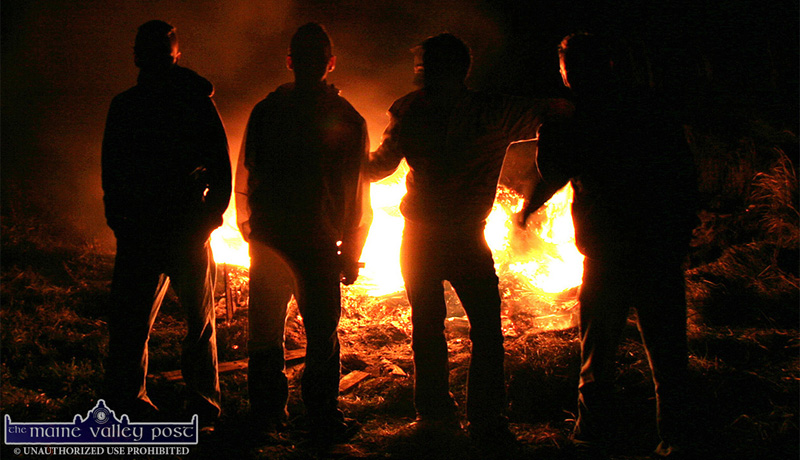

Cllr. Bobby O’Connell sent a reminder to members of the public locally to be aware of the advancing Halloween and its inherent dangers.
“We have seen the stockpiling of material in recent years for huge bonfires around the Castleisland area with everything from timber pallets, old carpets and even car and tractor tyres being stashed away in preparation,” said Cllr. O’Connell.
Tipped Off in Advance
“Luckily for the areas concerned we’re often tipped off in advance as these fires – apart from the obvious dangers to people with respiratory ailments – can do huge damage to the mostly green areas where they’re held not to mention what they do to the environment.
Keep Children Away
“People with young children should not let them next or near an unsupervised fire as they often contain explosive elements which can cause serious burns and injuries.
“If anyone notices stockpiling of material they can contact me and I’ll get it removed. It’s not a matter of being a spoil-sport but it’s a lot better to be sure than sorry in cases like this,” said Cllr. O’Connell.
Veterinary Ireland Advice for Pet Owners For Fireworks Season
Veterinary Ireland is advising pet owners on measures to keep their pets safe this Halloween.
Most pets are scared by sudden, loud noises and Halloween can be a very distressing time.
Up to 80% of pet owners report that their pet is afraid of fireworks.
Most pets will display mild symptoms of fear or anxiety initially but if improperly managed they tend to get worse.
Noise Phobias
Some of these animals will suffer from noise phobias – their reaction to certain noises are sudden, extreme and excessive.
This can be very distressing for pets as well as their owners and can result in harm to the pet – for example, dogs may panic and run blindly.
Halloween is a common time of year for pets to go missing or to be injured on the roads.
Some signs of anxiety to look out for in pets:
Dogs • Shivering or shaking • Destructive behaviour – e.g. chewing/scratching • Soiling the house • Panting excessively • Licking lips • Pacing • Attempting to run away.
Cats • Cowering or hiding • House soiling • Refusing to eat • Attempting to run away.
A List of Dos and Don’ts for Pet Owners
Ideally, try and ensure that someone remains with your pet when fireworks will be heard, and especially on the night of Halloween.
Provide a den or a hiding place where your pet can feel safe. Make your pet a comfortable bed here, with old sweatshirts and other clothing to give your pet a sense of your reassuring presence.
A crate with some blankets over it is ideal for a dog. A cat may prefer to hide in a high up location such as the top of a wardrobe.
Keep Pets Inside
Keep your pet inside with the doors and windows closed and your favourite radio station switched on in the room. Provide an extra litter tray for cats.
Make sure to exercise your dog early in the day, and give your pet something to do in the evening (such as chewing a frozen food-stuffed dog toy).
Ensure that all pets are wearing identification tags and have microchip identification.
Make Matters Worse
Ignore fearful behaviour such as panting, shaking or whining. If owners give such animals extra attention in an attempt to ‘comfort’ them, the pet will perceive this as a reward for displaying this type of behaviour and it can make matters worse over time.
Do not punish your pet for anxious behaviour such as scratching at doors or house soiling. This can also tend to exacerbate anxiety and make matters worse.
In Severe Cases
There are plug in diffusers, sprays and collars containing pheromones, as well as other products available from your vet, all of which can help to relieve anxiety in pets.
In severe cases visit your vet who may be able to prescribe medication to help in the short term.
In the long term, these pet owners need to ask their vet or a qualified behaviourist about noise desensitisation to prevent worsening of the problem.











































